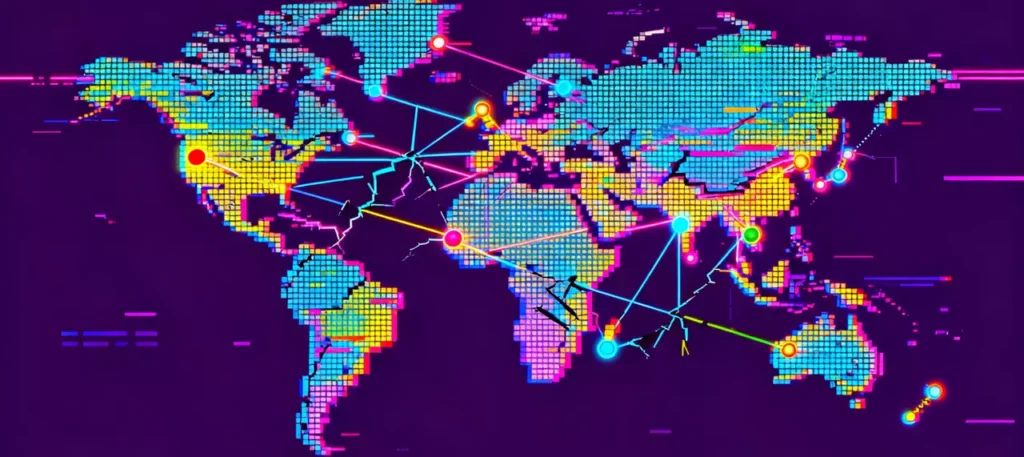In the world of data extraction, choosing the right programming language is a foundational decision that can define a project’s speed, power, and scalability. While many languages can scrape the web, a select few have risen to the top, offering superior ecosystems and capabilities. This guide ranks the best programming languages for web scraping, from the undisputed champion to powerful specialists, helping you choose the perfect tool for any data collection challenge.

The Unbreakable Foundation of Every Scraper
Before ranking the languages, it’s crucial to understand the single component that makes all large-scale scraping possible: the proxy network. The most elegant code written in the most powerful language is useless if its IP address gets blocked. Websites deploy sophisticated security that flags and bans any IP making too many requests.
A professional-grade proxy network is the mandatory foundation that provides the anonymity and scale required for any serious project.
Ranking the Best Languages for Web Scraping
With a solid proxy foundation in place, you can now select the right language for your project.
#1: Python (The Undisputed Champion)
For sheer versatility, ease of use, and an unbeatable library ecosystem, Python is in a class of its own. It is, without question, the best all-around language for web scraping.
Best For: Everyone from beginners to enterprise-level data science teams. It can handle any scraping task imaginable.
Legendary Libraries: An unparalleled toolkit including Requests for simple HTTP requests, BeautifulSoup for flexible HTML parsing, and Scrapy for building high-speed, industrial-strength crawlers.
Data Science Integration: Seamlessly connects with the entire data science stack, including Pandas for analysis and Jupyter for interactive development.
Rapid Development: Its simple, readable syntax means you can build and deploy a powerful scraper faster than in any other language.
The Bottom Line: If you want to get serious about web scraping, Python is the language you need to learn. It has no equal.
#2: JavaScript / Node.js (The Dynamic Web Master)
The modern web runs on JavaScript, and for scraping it, using JavaScript itself is a natural fit. With Node.js, JavaScript becomes a powerful server-side language perfect for handling dynamic content.
Best For: Scraping Single Page Applications (SPAs) and websites that rely heavily on JavaScript to load content.
Headless Browser Control: Home to elite browser automation libraries like Puppeteer and Playwright, which can control a real browser to see a page exactly as a user does.
Asynchronous Nature: Node.js is inherently non-blocking, making it highly efficient at handling many network connections at once.
The Bottom Line: When your target is a modern, interactive web application, JavaScript is often the most direct and powerful tool for the job.
#3: Java (The Enterprise Workhorse)
Java is a robust, mature, and highly scalable language, making it a strong choice for large-scale, enterprise-grade data extraction projects.
Best For: Large organizations that have existing Java infrastructure and require a scraper that integrates seamlessly into their enterprise systems.
Scalability and Performance: As a compiled language, Java offers excellent performance for handling massive amounts of data.
Robust Libraries: Tools like Jsoup provide powerful and efficient HTML parsing capabilities.
Multi-threading: Java’s strong multi-threading support makes it great for building highly concurrent web crawlers.
The Bottom Line: For large corporations that need a stable, scalable, and maintainable scraping solution, Java is a rock-solid choice.
#4: C++ / C# (The Performance Specialists)
When raw, unadulterated speed is the absolute highest priority, low-level languages like C++ and C# enter the conversation.
Best For: Highly specialized, time-critical data extraction tasks where every millisecond of performance counts, such as in high-frequency financial data scraping.
Unmatched Speed: Being compiled languages that offer close-to-the-metal control, they provide the fastest possible execution speeds.
Memory Management: Offer granular control over system resources for highly optimized applications.
The Bottom Line: These are niche, expert-level tools. For 99% of scraping tasks, their complexity is overkill, but for that 1% where speed is everything, they are unbeatable.

The Winning Combination
While Python remains the dominant force in web scraping, the “best” language is ultimately the one that aligns with your project’s specific needs—be it the JavaScript prowess of Node.js or the enterprise stability of Java. However, the success of a scraper written in any of these languages is fundamentally dependent on the quality of the proxy network it uses. By combining a top-tier language with the power and reliability of IPFLY’s residential proxies, you create a professional-grade data extraction engine capable of conquering any challenge on the web.
Stop figuring out proxy usage tricks alone! Visit IPFLY.net to learn about our excellent proxy services, and more importantly, join the IPFLY Telegram community—exchange experiences with peers, get exclusive strategies, and upgrade your proxy experience from “usable” to “excellent”. Act now!


